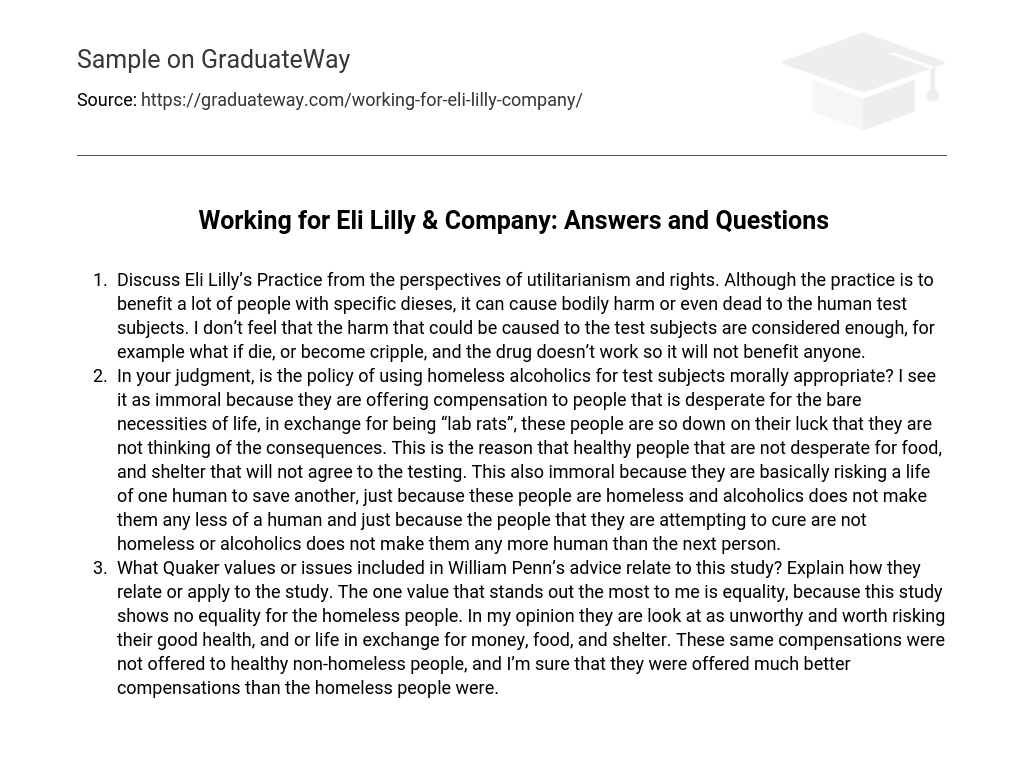- Discuss Eli Lilly’s Practice from the perspectives of utilitarianism and rights. Although the practice is to benefit a lot of people with specific dieses, it can cause bodily harm or even dead to the human test subjects. I don’t feel that the harm that could be caused to the test subjects are considered enough, for example what if die, or become cripple, and the drug doesn’t work so it will not benefit anyone.
- In your judgment, is the policy of using homeless alcoholics for test subjects morally appropriate? I see it as immoral because they are offering compensation to people that is desperate for the bare necessities of life, in exchange for being “lab rats”, these people are so down on their luck that they are not thinking of the consequences. This is the reason that healthy people that are not desperate for food, and shelter that will not agree to the testing. This also immoral because they are basically risking a life of one human to save another, just because these people are homeless and alcoholics does not make them any less of a human and just because the people that they are attempting to cure are not homeless or alcoholics does not make them any more human than the next person.
- What Quaker values or issues included in William Penn’s advice relate to this study? Explain how they relate or apply to the study. The one value that stands out the most to me is equality, because this study shows no equality for the homeless people. In my opinion they are look at as unworthy and worth risking their good health, and or life in exchange for money, food, and shelter. These same compensations were not offered to healthy non-homeless people, and I’m sure that they were offered much better compensations than the homeless people were.
Working for Eli Lilly & Company: Answers and Questions
Eli Lilly’s practice of using homeless alcoholics as test subjects for potentially harmful drugs raises ethical concerns from both utilitarian and rights perspectives. While the practice may benefit many people with specific diseases, it could also cause bodily harm or even death to the test subjects. This raises questions about whether the potential benefits outweigh the potential harm to vulnerable individuals who may not fully understand the risks involved. From a utilitarian perspective, the practice may be justified if it benefits a greater number of people than it harms. However, from a rights perspective, the use of homeless alcoholics as test subjects is immoral because they are being offered compensation for their desperation in exchange for risking their health or lives. This violates the principle of equality and shows a lack of regard for the value of human life. William Penn’s Quaker values of equality and respect for human life are relevant to this study because they highlight the importance of treating all people with dignity and fairness, regardless of their social status or circumstances. The study’s use of homeless alcoholics as test subjects fails to uphold these values and raises serious ethical concerns.
Cite this page
Working for Eli Lilly & Company: Answers and Questions. (2016, Nov 28). Retrieved from
https://graduateway.com/working-for-eli-lilly-company/





